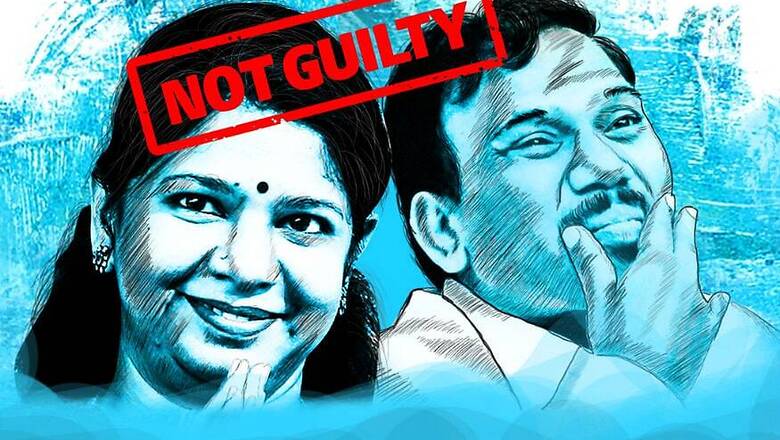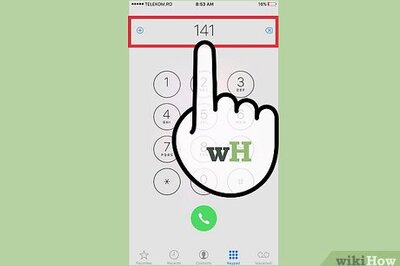
views
New Delhi: A special CBI court acquitted all the 19 accused in the 2G spectrum allocation scam case on Thursday. Judge OP Saini in a verdict running over 1,500 pages said that the former Telecom Minister and DMK leader A Raja was not the ‘mother lode of conspiracy’ and the quality of the “prosecution totally deteriorated and became directionless” towards the end.
Saini had some harsh words for the CBI. "Religiously sat in open court for the last 7 years from 10 am to 5 pm even during summer vacation awaiting for someone with legally admissible evidence. Not a single soul turned up."
The 2G scam pertains to alleged irregularities in the allocation of second generation (2G) spectrum in 2008, when Unified Access Services (UAS) licences were issued on a first come, first served (FCFS) basis at a price arrived at in 2001. In its chargesheet, filed in April 2011, the CBI alleged the exchequer had suffered a loss of Rs 30,984 crore in the allocation of 122 licences for 2G spectrum.
The main accused in the 2G case is Raja, who was Minister for Communications and IT in the UPA government. The case centres around five main allegations: fixation of an arbitrary cut-off date; violation of FCFS policy in issuing Letters of Intent (LoIs); granting of UAS licences to two ineligible companies; cheating the exchequer by non-revision of entry fee; and payment of Rs 200 crore bribe to Kalaignar TV Pvt Ltd, promoted by the family of DMK patriarch M Karunanidhi.
In Thursday’s verdict, the court ruled that “there is no material on record to show that Raja was mother lode of conspiracy in the instant case. There is also no evidence of his no-holds-barred immersion in any wrongdoing, conspiracy or corruption. I have no hesitation in holding that record is not sufficient and the prosecution has miserably failed in proving charges. All accused are acquitted"”
It was alleged by the CBI that Raja asked for a cut-off date for applications, even though “no such cap” was recommended by TRAI. DoT proposed October 10, 2007; Raja brought it forward first to October 1, and then to September 25, allegedly after Raja’s private secretary RK Chandolia was informed that Unitech had applied on September 24.
The court noted that the prosecution though had argued with fervor in the beginning slowly lost track towards the end.
In the beginning, the prosecution started with the case with great enthusiasm and ardour. However, as the case progressed, it became highly cautious and guarded in its attitude making it difficult to find out as to what prosecution wanted to prove. “The quality of prosecution totally deteriorated and it became directionless and diffident,” reads the CBI court verdict.
The court has also raised questions on the chargesheet filed by the CBI and called the facts recorded therein “factually incorrect.” The CBI had filed 80,000 pages of chargesheet which was brought in several trunks to the court when the trial had commenced.
“I may add that many facts recorded in the chargesheet are factually incorrect, like Finance Secretary strongly recommending revision of entry fee, deletion of a clause of draft LOI by Sh. A. Raja, Recommendations of TRAI for revision of entry fee etc,” reads the verdict.
Siddharth Behura, former Telecom Secretary, who was an accused and had worked with Raja when he was Minister for Environment and Forests, ragged in G E Vahanvati, Solicitor General in January 2008, alleging that he gave a false statement to “disassociate” from formulating the revised first come, first served (FCFS) policy.
Now the court states that the former solicitor general had “endeavoured hard to absolve himself of all responsibility” and that his “testimony was rejected.”
“He endeavoured hard to absolve himself of all responsibility. Thus, his evidence did not match up to his standing. It is unfortunate that he is one of those witnesses whose testimony has been rejected in toto for being contrary to official record,” said Judge Saini.
This verdict by Judge Saini also raises questions the SC verdict delivered in February, 2012, where it cancelled 122 2G licences granted by former Telecom Minister A Raja in January 2008 on first-come first-serve basis. The apex court held that licences for 2G spectrum were granted in arbitrary and unconstitutional manner.
Further the court has also raised question on the documents that were submitted as evidences in the court of law, and hinted towards a fact that issues were not understood in proper perspective which led to a “suspicion that grave wrongdoing was done when there was none.”
“When documents are not traceable easily and readily and policy issues are scattered haphazardly in so many files, it becomes difficult for anyone to understand the issues. Non-understanding of issues in proper perspective led to a suspicion of grave wrongdoing, where there was none, at least as per record of the court,” notes Judge Saini.

















Comments
0 comment